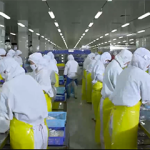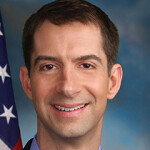Mr. Aquaculture Niels Alsted retires from BioMar
Niels Alsted, the former executive vice president of business relations at BioMar, recently retired after 45 years in the aquaculture industry.
Alsted, known to his colleagues as "Mr. Aquaculture," admitted to having mixed feelings about leaving a job he loved, but explained that he had prepared for this day for the past few years.
“Everything has an end, but for the next few years at least, it is not a total goodbye to the world of fish farming and feed, because I hope to work one to two days per week on aquaculture related projects. It helps that I am very proud of the valuable legacy I am leaving behind, both in BioMar and in the wider aquaculture industry, having helped to develop innovative feed products, and open up new markets in Chile and China,” Alsted told SeafoodSource.
Alsted began his working life in 1974, on a trout farm in Denmark, before studying for a degree in aquaculture in Norway. He stayed in academia, working as a researcher and lecturer on fishmeal and fish quality issues for a few years, before transferring to BioMar.
“In the early days, we fed minced raw fish to the trout, species such as pout, sandeels, and small pelagics, which were often of questionable freshness. At the time, I never imagined that we would end up creating formulated feeds using computers, based on things like digestibility and amino acid profiles. Nor could I imagine fish farms growing from small family units to large companies listed on the stock market," he said. "It has been an amazing journey, with huge changes along the way."
Minced fish gradually became wet pellets, then dry pellets, as the industry moved towards specialist diets based on scientific knowledge, with huge costs attached to the dedicated research and development work, which continues today. Alsted said he believes that this metamorphosis gave the aquaculture industry the flexibility to develop into a global success story.
He also acknowledged that the benefits of commercial feed are not yet accessible universally. In Asia and parts of Africa, wet diets are still the norm on freshwater farms, but they contribute significantly to pollution and consequent water quality issues, and make fish farming a higher risk operation.
When Alsted moved to BioMar, he suggested developing a commercial diet that could produce more fish with fewer resources, while also limiting the discharge of excess nutrients from fish farms.
“The result was the first commercially available, environmentally friendly feed," he said. "It was a win-win situation, with the farmers, BioMar and the environment all benefitting. We could finally produce more with less, and it was an important foundation stone for BioMar. At the time, the company was producing 20,000 tonnes of fish feed and today the output has grown to 1.3 million tonnes of fish and shrimp feed."
Alsted has also played an important part in promoting the need for responsible and sustainable aquaculture, and is pleased that these are a focus for the industry today.
“Considerable efforts are underway to ensure that the fishmeal and fish oil we use in feed are responsibly sourced, and the basket of alternative feed ingredients and novel raw materials widens every year, with items such as insect meal and algal oil being incorporated,” he said.
Alsted has been involved with numerous initiatives, contributing for example as a member of the Global Salmon Initiative (GSI) feed task force, and the Global Standard for Responsible Supply (IFFO RS) governance body, and chairing the board of the European Feed Manufacturers’ Federation (FEFAC).
BioMar CEO Carlos Diaz praised Alsted’s contribution to the company and to the larger goal of innovation in the aquafeed sector.
“His dedication to developing a sustainable and professional aquaculture industry has led to the high standards and high-end feed ranges we see in the market today," Diaz said. "He has also been one of the most important people in BioMar, helping to develop a culture built upon trust, relationships, professionalism and a desire to pioneer the future of the industry."
Looking to the future, Alsted believes that if the developing world is to make its aquaculture industry more successful, then greater efficiencies are needed in the use of feed and water resources, farming techniques need to improve, and the regulatory framework needs to be addressed.
“Using the right feed can significantly reduce the nutrient load in the water, and I think that improvements in this respect will force a major change in freshwater fish farming in Asia,” he said.
He also predicts that Recirculating Aquaculture Systems (RAS) will be become more important, along with large offshore fish farming facilities.
“These expansions will be led by companies and consortiums with the wealth and know-how to do it, neither of which existed in any great measure in the early days,” he said.
Alsted’s parting message to industry is to be transparent, because there is nothing to hide, and to continue the good work of documenting responsible use of raw material.
“I look forward to watching all these developments from a distance, and hope that I can continue to be involved in some small measure for many years to come,” he said.






Share